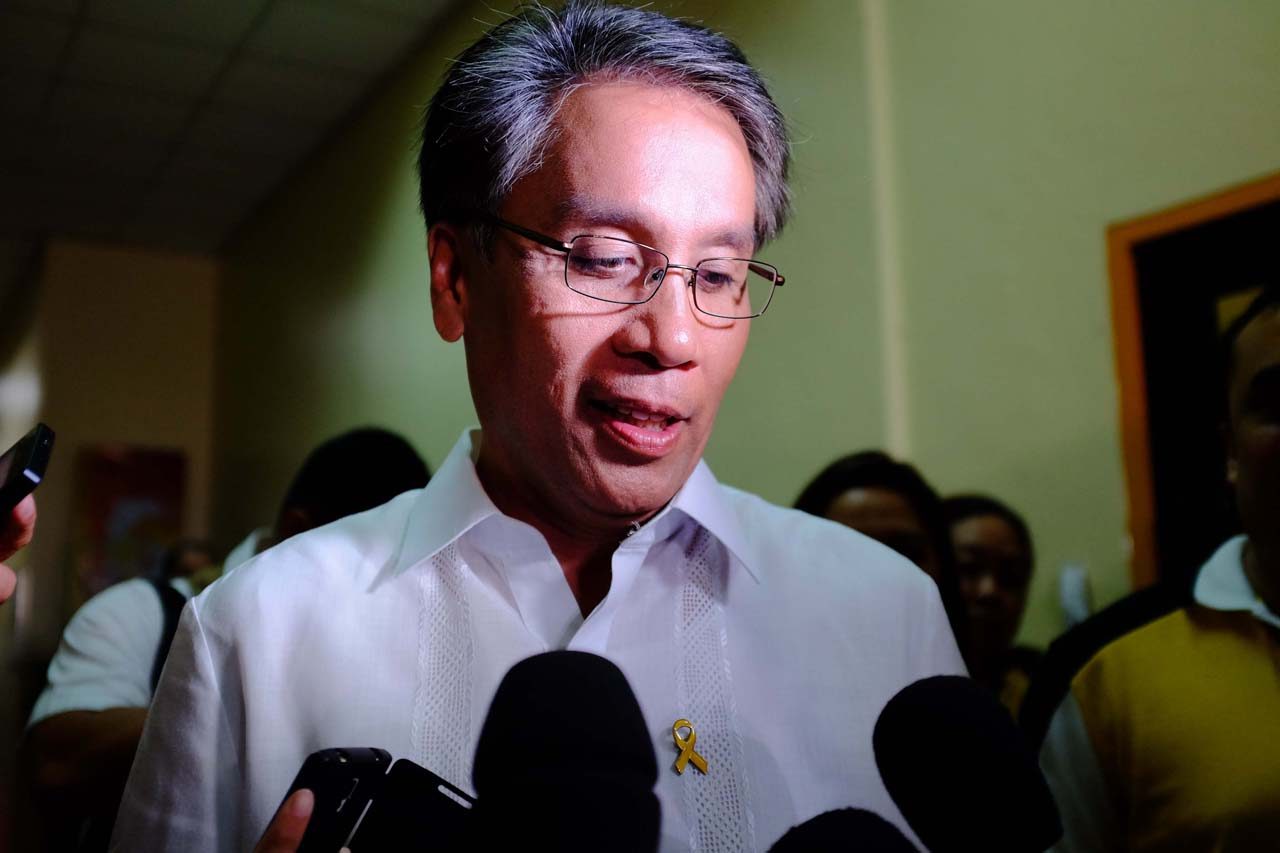SUMMARY
This is AI generated summarization, which may have errors. For context, always refer to the full article.

MANILA, Philippines – Less time for ads and “non-essentials,” and more time for actual talking.
The camp of Liberal Party (LP) standard-bearer Manuel Roxas II wants changes in the format of future Commission on Elections (Comelec)-sanctioned presidential debates, following the first one staged in Cagayan de Oro on February 21.
“Definitely we will be raising issues as to the format… particularly that too little time was given to each candidate… to the extent that you never really got a good sense of where the candidates were,” Akbayan Representative Ibarra Gutierrez, spokesman for both Roxas and the LP-led “Daang Matuwid” coalition said in a podcast for Rappler’s Inside Track.
The Cagayan de Oro debate, held at the Capitol University and sponsored by GMA Network and Inquirer, was the first presidential debate since 1992 and the first ever to be held outside of Metro Manila. (READ: Cagayan de Oro debate: Did Mar Roxas deliver?)
All 5 candidates vying for the presidency attended the debate, which was hosted by two GMA anchors and one editor from the Inquirer.
Mindanao-based MindaNews estimated that from 5 to 7pm, the time slot for the debate, some 48 minutes of airtime was devoted solely to ads, including ones featuring the candidates themselves.
According to Ibarra’s estimate, only 55 minutes were allocated to the 5 presidential candidates.
Candidates were given 60 seconds for their opening statement, 90 seconds to answer questions, 60 seconds to rebut other candidates’ answers, and 30 seconds to give a final reply.
“Focus on giving the candidates time to talk,” said Gutierrez, when asked what sort of changes they’d want to see in time for the next round of debates in Cebu City.
“From the start, our belief has been our candidate is actually the candidate with the biggest experience, the highest level of familiarity with policy issues, the person best prepared to be president. So give him more time to talk and you’ll see the difference. But if everybody is given 90 seconds, it’s going to be a miss universe type of thing,” he added.
It was Gutierrez, one of two spokespersons for the LP-led coalition, who represented Roxas in meetings with the Comelec. During those meetings, said Gutierrez, they asked for a minimum of 3 minutes for each candidate to answer the questions, which tackled a wide range of issues: from issues specific to a candidate, poverty, and those concerning Mindanao.
When the debate format was being finalized, said Gutierrez, organizers insisted on a “shorter format” because “people will be bored.”
“We have the response from the public saying we don’t want this kind of format, it’s not really helping us understand where the candidates are coming from. We want a more substantial, a meatier format that would allow the candidates to talk more about their platforms. We want the opportunity to compare and contrast the stands of candidates on issues,” said Gutierrez, who was also in Cagayan de Oro for the debate.
“Hopefully, Comelec will be more open,” he added.
The debate was a first for the Philippine elections and is not without its controversies.
Cagayan de Oro-based media organizations protested the limited access granted media during the debate. Only GMA-7 and Inquirer had full access to the event. Reporters from other companies were barred from bringing cameras to the venue.
“It is our position that the presidential debate is far too important, and should be beyond corporate media’s quest for higher ratings and wider readership,” said the Cagayan de Oro Press Club in a statement that it released on the day of the debate.
Rappler has filed a case against Comelec Chairman Andres Bautista because his decision “to grant broadcast rights to the upcoming presidential and vice presidential debates only to the nation’s biggest commercial television companies and their chosen partners is out of touch with reality.”
The Supreme Court has since ordered Bautista to comment on Rappler’s complaint.
The next debate will happen on March 20 in Cebu. – Rappler.com
Add a comment
How does this make you feel?
There are no comments yet. Add your comment to start the conversation.